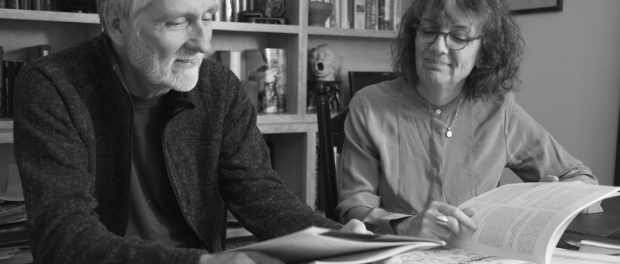Quebec My Country Mon Pays: A Nation of Debate
Montreal-born filmmaker John Walker takes the idea of a nation – the constantly deliberated identity of a society, whether tied to a history, a language or way of life – and brings us Quebec My Country Mon Pays. The film is not really a unique discussion of Quebec to the world, but insightful nonetheless. The othering of the Anglophone community has been discussed and shall continue to be the subject matter of chatter in Quebec for decades, but in that there is Walker’s own story.
The true nature of nationalism – and above all the real meaning of wanting to belong – is a charged debate to say the least. There are elements of culture, history, personal and social identity, political power and the path to self-determination, if any. Quebec My Country Mon Pays isn’t a sociological study. It is a bit of history from Duplessis’s iron fisted rule of the province, in league with the church, to the federalist idealism of Pierre Elliot Trudeau. The film touches the surface of the FLQ and how it was never given its due and then the sudden but organic transformation of Quebec society that festered under the last word rule of the church, to a free thinking, assertive, nationalist populace. The one thing I came out with after watching this film was that alienation remains an affliction on both sides of the divide, whether Anglophone or Francophone. When the discourse is us vs them, alienation and discord is a natural consequence.

Still from Quebec My Country Mon Pays.
The filmmaker invites us on his travels, using lots of his own family’s trajectory and archival footage to trace back his roots of where he stood before and after the Silent Revolution. And with that Walker also asks questions like: Where is Quebec today? What does it mean to be a Quebecker in the 21 century? Are you a real Quebecois/se, if you speak English as your mother tongue? From filmmakers, writers, journalists and other citizens of Quebec, people weigh in, speaking from personal and other experiences of how relevant and alive this ‘us vs. them’ debate is. For the Francophone majority, the anxious world of a minority Anglophone pales in comparison to their threatened status in North America. And on the flip side, for an Anglophone, the idea that their mother tongue will determine if they can lay claim to their own home, heritage and their identity continues to haunt.
Walker brings us a film that tries to balance the debate of a community’s sense of alienation or not belonging and the credibility of the Quebec nationalist movement and their claim to being a ‘different people’. The film is personal, engaging and touches on a lot of my own issues of identity as an Allophone who decided to make Quebec my home. The question remains, where do ‘we’ fit and if we do so at all in the idea of a modern Quebec?

Still from Quebec My Country Mon Pays.
In any debate surrounding nationalism, parallels are easy to draw. The recent referendum in Scotland, the constant battles for nationhood in Catalonia and Tibet and Taiwan and Kashmir …. the list is endless. But these parallels aren’t that simplistic. I often get into trouble with my nationalist friends when I remind them that Quebec is not Scotland and it’s not Tibet. From someone who immigrated to Quebec from a land of a thousand languages and cultures, all I see is two former colonizers battling it out, albeit without the active tools of war, for continued supremacy. And the complete absence of any discourse that would cede the entire land of modern day Canada to its original owners, so they can decide what to do on and with this land, compels me to wonder if I should be sympathetic to this shared erstwhile colonizers’ plight.
Quebec My Country Mon Pays is now playing at Cinema du Parc.






